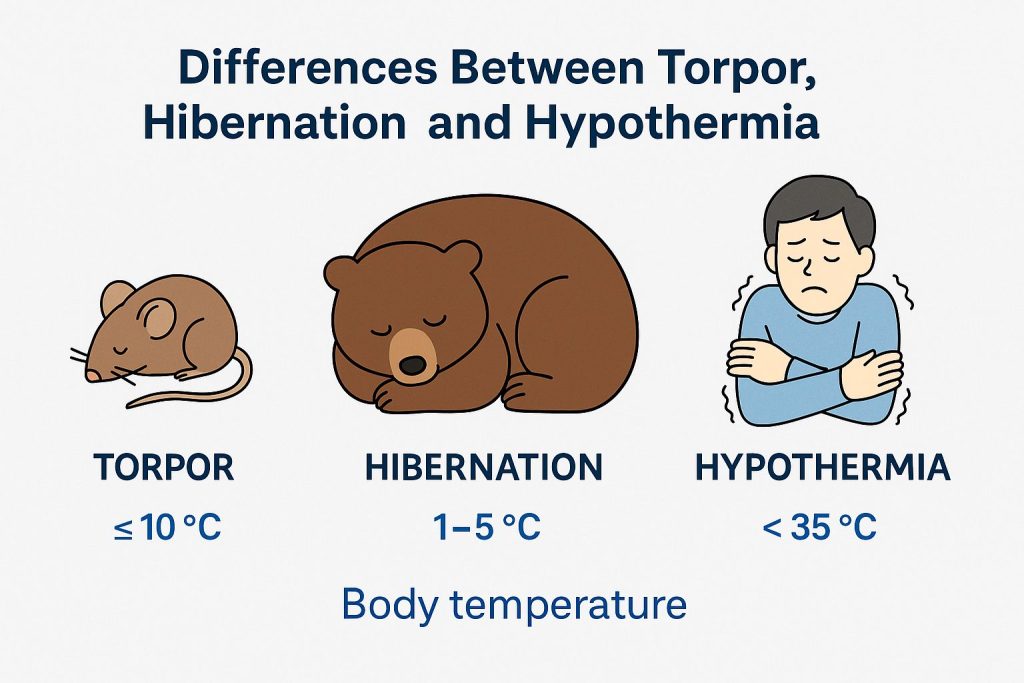A Torpor-like State in Mice slows blood Epigenetic Aging and Prolongs Healthspan

A New Study published in Nature Aging about A torpor-like state in mice slows blood epigenetic aging and prolongs healthspan.
These findings shown the potential of manipulating body temperature to influence aging processes, opening avenues for novel therapeutic strategies targeting aging and age-related diseases.
Inducing Torpor-Like States to Slow Aging
- Controlled Induction of Torpor-Like State (TLS): Researchers successfully induced a torpor-like state in non-transgenic mice by targeting specific neurons in the preoptic area of the hypothalamus. This TLS mimicked natural torpor, characterized by reduced core body temperature and metabolic rate.
- Significant Reduction in Epigenetic Aging: Prolonged TLS led to a notable slowdown in epigenetic aging, particularly in blood tissue, where some mice exhibited up to a 76% reduction in aging markers.
- Temperature as the Primary Factor: The deceleration of epigenetic aging was primarily attributed to decreased core body temperature, rather than reduced metabolic rate or caloric restriction.
- Enhanced Healthspan Indicators: Mice undergoing TLS showed improvements in healthspan metrics, such as reduced frailty, indicating broader physiological benefits beyond slowed epigenetic aging.
- Tissue-Specific Effects Observed: While blood tissue showed the most significant response, the impact of TLS on epigenetic aging varied across different tissues, suggesting a tissue-specific influence.
What is Torpor?
- Lowered body temperature
- Slowed heart rate and breathing
- Decreased metabolism
- Can last from hours (daily torpor) to weeks (hibernation)
- Used by animals like bats, hummingbirds, and bears
In the context of aging research:
Recent studies (like the one you provided) show that torpor may slow biological aging, particularly by lowering body temperature, which in turn slows down epigenetic aging clocks.
Share this with your circle